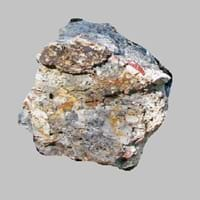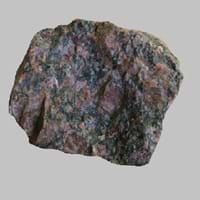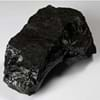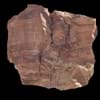Definition
Novaculite is a dense, hard, fine-grained, siliceous metamorpic rock which is a type of chert that breaks with conchoidal fracture
Monzogranite is a type of igneous rock and belongs to biotite granite rocks that are considered to be the final fractionation product of magma
Discoverer
Unknown
Unknown
Etymology
From Latin word novacula, for razor stone
From its mineral content
Class
Sedimentary Rocks
Igneous Rocks
Sub-Class
Durable Rock, Hard Rock
Durable Rock, Hard Rock
Group
Not Applicable
Plutonic
Other Categories
Fine Grained Rock, Opaque Rock
Coarse Grained Rock, Opaque Rock
Texture
Banded, Glassy, Rough, Vitreous
Porphyritic
Color
Black, Brown, Green, Grey, Red, White
Black, Grey, Orange, Pink, White
Durability
Durable
Durable
Scratch Resistant
Yes
Yes
Appearance
Glassy or Pearly
Veined or Pebbled
Interior Uses
Countertops, Decorative Aggregates, Flooring, Interior Decoration
Bathrooms, Countertops, Decorative Aggregates, Entryways, Floor Tiles, Homes, Hotels, Interior Decoration, Kitchens, Stair Treads
Exterior Uses
As Building Stone, Garden Decoration
As Building Stone, As Facing Stone, Office Buildings, Paving Stone
Other Architectural Uses
Curbing
Not Yet Used
Construction Industry
Arrowheads, Building houses or walls, Cement Manufacture, Construction Aggregate, Cutting Tool, for Road Aggregate, Knives, Landscaping, Making natural cement, Production of Glass and Ceramics, Rail Track Ballast, Roadstone, Spear Points, Used to sharpen metal tools and weapons
As Dimension Stone
Medical Industry
Not Yet Used
Not Yet Used
Antiquity Uses
Artifacts, Monuments
Artifacts, Monuments, Sculpture, Small Figurines
Commercial Uses
Cemetery Markers, Gemstone, In aquifers, In fire-starting tools, Jewelry, Manufacture of tools, Pebbles are used in ball mills to grind in ceramics industry, To determine the gold content of jewelry
Cemetery Markers, Commemorative Tablets, Creating Artwork, Curling, Tombstones
Types
Not Available
Muscovite-Biotite-Metagranite, Muscovite-Metagranite, Schollen-Metagranite and Biotite-Metagranite
Features
Clasts are smooth to touch, Easily splits into thin plates, Has High structural resistance against erosion and climate
Available in Lots of Colors and Patterns, It is One of the Oldest, Strongest and Hardest Rock
Archaeological Significance
Famous Monuments
Data Not Available
Data Not Available
Sculpture
Not Yet Used
Used
Famous Sculptures
Not Applicable
Data Not Available
Pictographs
Not Used
Not Used
Petroglyphs
Not Used
Not Used
Figurines
Not Yet Used
Used
Formation
Novaculite forms when microcrystals of silicon dioxide grow within soft sediments that become limestone or chalk. The formation of Novaculite can be either of chemical or biological origin.
Monzogranite is a fine-grained, hard rock which is a type of metasomatite, essentially altered basalt. It forms with or without crystallization, either below the surface as intrusive rocks or on the surface as extrusive rocks.
Mineral Content
Quartz, Silicon
Apatite, Biotite, Hornblende, Microcline, Perthite, Plagioclase, Quartz, Titanite, Zircon
Compound Content
Ca, Silicon Dioxide
Aluminium Oxide, CaO, Iron(III) Oxide, FeO, Potassium Oxide, MgO, MnO, Sodium Oxide, Phosphorus Pentoxide, Silicon Dioxide, Titanium Dioxide
Types of Metamorphism
Not Applicable
Burial Metamorphism, Cataclastic Metamorphism, Contact Metamorphism
Types of Weathering
Not Applicable
Biological Weathering, Chemical Weathering, Mechanical Weathering
Types of Erosion
Chemical Erosion, Coastal Erosion, Glacier Erosion
Chemical Erosion
Grain Size
Fine Grained
Coarse Grained
Fracture
Conchoidal
Not Available
Porosity
Less Porous
Less Porous
Luster
Waxy and Dull
Dull to Grainy with Sporadic parts Pearly and Vitreous
Cleavage
Non-Existent
Not Available
Toughness
1.5
Not Available
Specific Gravity
2.5-2.7
2.6-2.7
Transparency
Translucent to Opaque
Opaque
Density
2.7 g/cm3
2.6-2.8 g/cm3
Resistance
Heat Resistant, Impact Resistant, Pressure Resistant, Wear Resistant
Heat Resistant, Wear Resistant
Deposits in Eastern Continents
Asia
China, India, Iran, Japan, Oman, Russia, Saudi Arabia, Taiwan, Thailand, Vietnam
China, India, Iran, Saudi Arabia, Sri Lanka, Taiwan, Thailand, Turkey, Vietnam
Africa
Kenya, Morocco, South Africa, Tanzania
Angola, Egypt, Madagascar, Namibia, Nigeria, South Africa
Europe
Austria, France, Greece, Italy, Malta, Poland, Portugal, Serbia, Spain, Sweden, United Kingdom
Austria, Belgium, Finland, France, Germany, Italy, Norway, Sardinia, Spain, Switzerland, The Czech Republic, Venezuela
Others
Greenland, Mid-Atlantic Ridge
Not Yet Found
Deposits in Western Continents
North America
Canada, Mexico, USA
Canada, USA
South America
Bolivia, Brazil
Not Yet Found
Deposits in Oceania Continent
Australia
New South Wales, Queensland, South Australia, Western Australia
Not Yet Found
Novaculite vs Monzogranite Characteristics
Though some rocks look identical, they have certain characteristics which distinguish them from others. Characteristics of rocks include texture, appearance, color, fracture, streak, hardness etc. Novaculite vs Monzogranite characteristics assist us to distinguish and recognize rocks. Also you can check about Properties of Novaculite and Properties of Monzogranite. Learn more about Novaculite vs Monzogranite in the next section. The interior uses of Novaculite include Countertops, Decorative aggregates, Flooring and Interior decoration whereas the interior uses of Monzogranite include Bathrooms, Countertops, Decorative aggregates, Entryways, Floor tiles, Homes, Hotels, Interior decoration, Kitchens and Stair treads. Due to some exceptional properties of Novaculite and Monzogranite, they have various applications in construction industry. The uses of Novaculite in construction industry include Arrowheads, Building houses or walls, Cement manufacture, Construction aggregate, Cutting tool, For road aggregate, Knives, Landscaping, Making natural cement, Production of glass and ceramics, Rail track ballast, Roadstone, Spear points, Used to sharpen metal tools and weapons and that of Monzogranite include As dimension stone.
More about Novaculite and Monzogranite
Here you can know more about Novaculite and Monzogranite. The life cycle of a rock consists of formation of rock, composition of rock and transformation of rock. The composition of Novaculite and Monzogranite consists of mineral content and compound content. The mineral content of Novaculite includes Quartz, Silicon and mineral content of Monzogranite includes Apatite, Biotite, Hornblende, Microcline, Perthite, Plagioclase, Quartz, Titanite, Zircon. You can also check out the list of all . When we have to compare Novaculite vs Monzogranite, the texture, color and appearance plays an important role in determining the type of rock. Novaculite is available in black, brown, green, grey, red, white colors whereas, Monzogranite is available in black, grey, orange, pink, white colors. Appearance of Novaculite is Glassy or Pearly and that of Monzogranite is Veined or Pebbled. Properties of rock is another aspect for Novaculite vs Monzogranite. The hardness of Novaculite is 7 and that of Monzogranite is 6-7. The types of Novaculite are Not Available whereas types of Monzogranite are Muscovite-Biotite-Metagranite, Muscovite-Metagranite, Schollen-Metagranite and Biotite-Metagranite. Streak of rock is the color of powder produced when it is dragged across an unweathered surface. The streak of Novaculite is colorless while that of Monzogranite is white. The specific heat capacity of Novaculite is 0.74 kJ/Kg K and that of Monzogranite is 0.79 kJ/Kg K. Depending on the properties like hardness, toughness, specific heat capacity, porosity etc., rocks are resistant to heat, wear, impact, etc.Novaculite is heat resistant, impact resistant, pressure resistant, wear resistant whereas Monzogranite is heat resistant, wear resistant.





